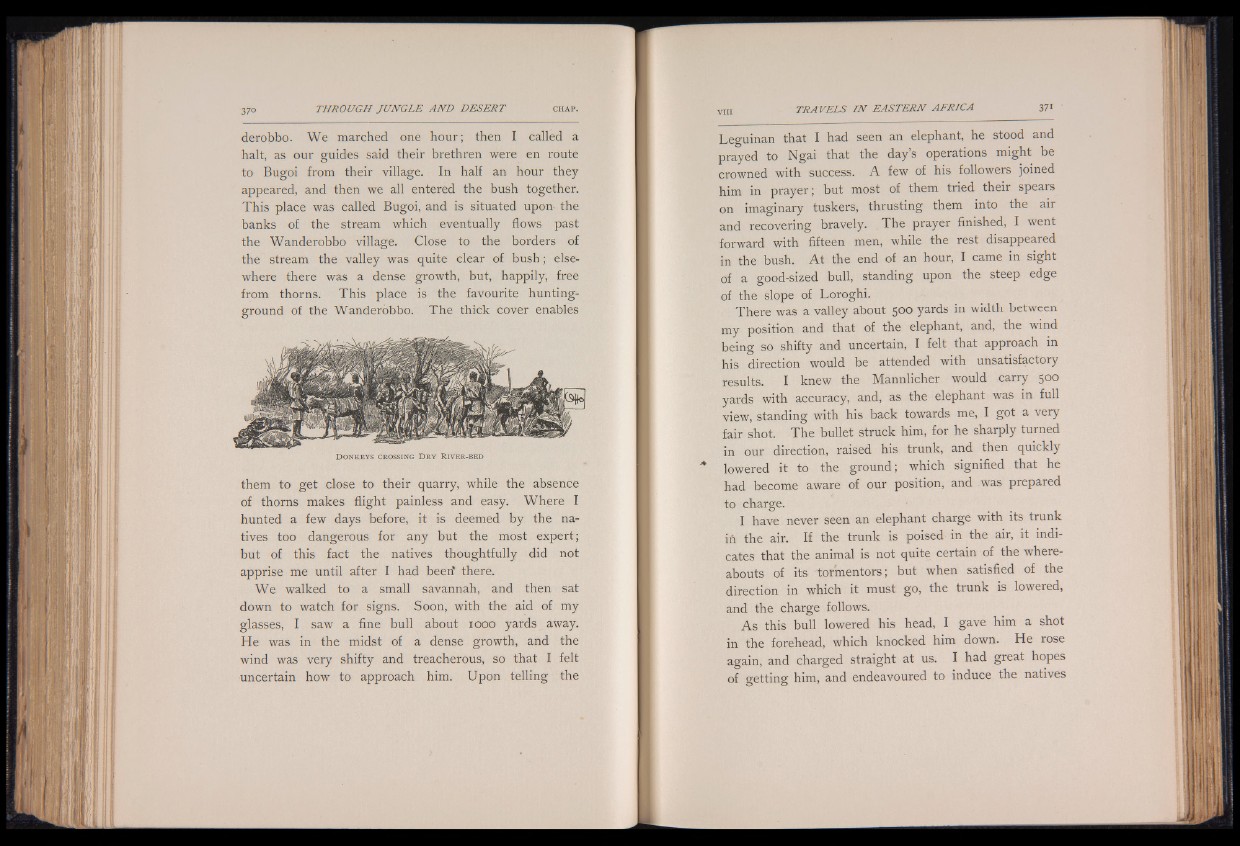
derobbo. We marched one hour; then I called a
halt, as our guides said their brethren ’ o were en route
to Bugoi from their village. In half an hour they
appeared, and then we all entered the bush together.
This place was called Bugoi, and is situated upon- the
banks of the stream which eventually flows past
the Wanderobbo village. Close to the borders of
the stream the valley was quite clear of bush; elsewhere
there was a dense growth, but, happily, free
from thorns. This place is the favourite hunting-
ground of the Wanderobbo. The thick cover enables
D o n k e y s c r o s s in g D r y R i v e r -b e d
them to get close to their quarry, while the absence
of thorns makes flight painless and easy. Where I
hunted a few days before, it is deemed by the natives
too dangerous for any but the most expert;
but of this fact the natives thoughtfully did not
apprise me until after I had been* there.
We walked to a small savannah, and then sat
down to watch for signs. Soon, with the aid of my
glasses, I saw a fine bull about iooo yards away.
He was in the midst of a dense growth, and the
wind was very shifty and treacherous, so that I felt
uncertain how to approach him. Upon telling the
Leguinan that I had seen an elephant, he stood and
prayed to Ngai that the day’s operations might be
crowned with success. A few of his followers joined
him in prayer; but most of them tried their spears
on imaginary tuskers, thrusting them into the air
and recovering bravely. The prayer finished, I went
forward with fifteen men, while the rest disappeared
in the bush. A t the end of an hour, I came in sight
of a good-sized bull, standing upon the steep edge
of the slope of Loroghi.
There was a valley about 500 yards in width between
my position and that of the elephant, and, the wind
being so shifty and uncertain, I felt that approach in
his direction would be attended with unsatisfactory
results. I knew the Mannlicher would carry 500
yards with accuracy, and, as the elephant was in full
view, standing with his back towards me, I got a very
fair shot. The bullet struck him, for he sharply turned
in our direction, raised his trunk, and then quickly
* lowered it to the ground; which signified that he
had become aware of our position, and was prepared
to charge.
I have never seen an elephant charge with its trunk
in the air. If the trunk is poised in the air, it indicates
that the animal is not quite certain of the whereabouts
of its tormentors; but when satisfied of the
direction in which it must go, the trunk is lowered,
and the charge follows.
As this bull lowered his head, I gave him a shot
in the forehead, which knocked him down. He rose
again, and charged straight at us. I had great hopes
of getting him, and endeavoured to induce the natives